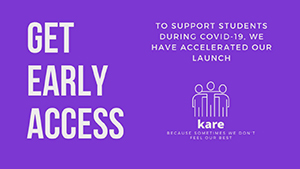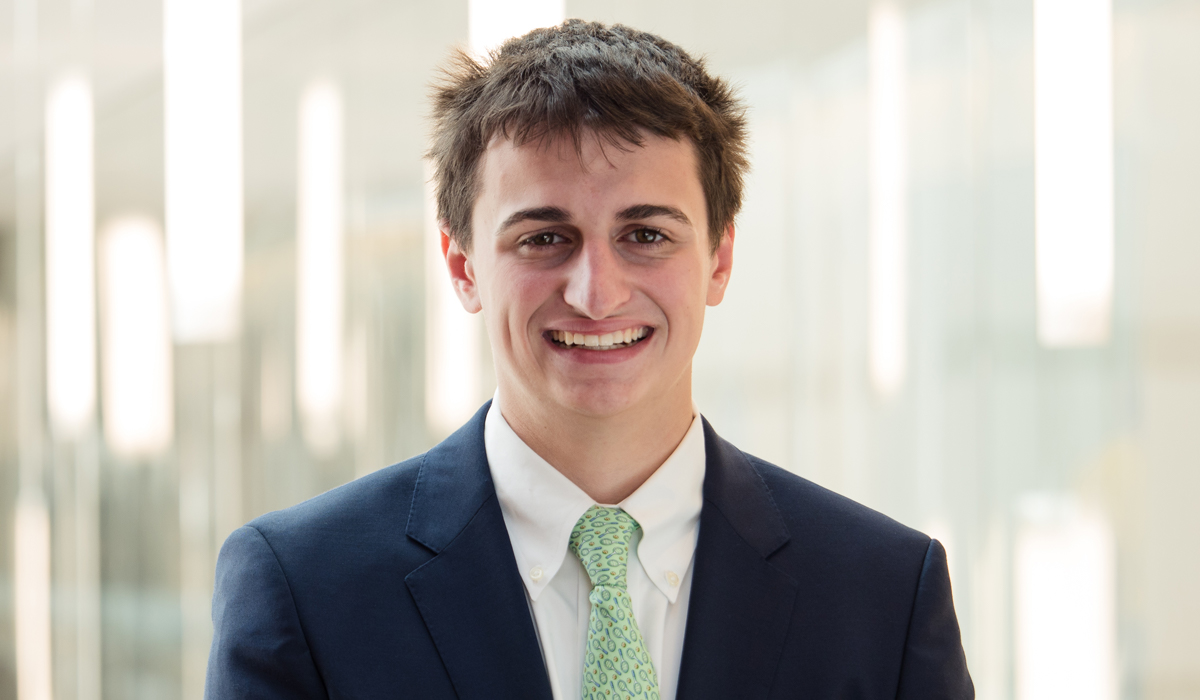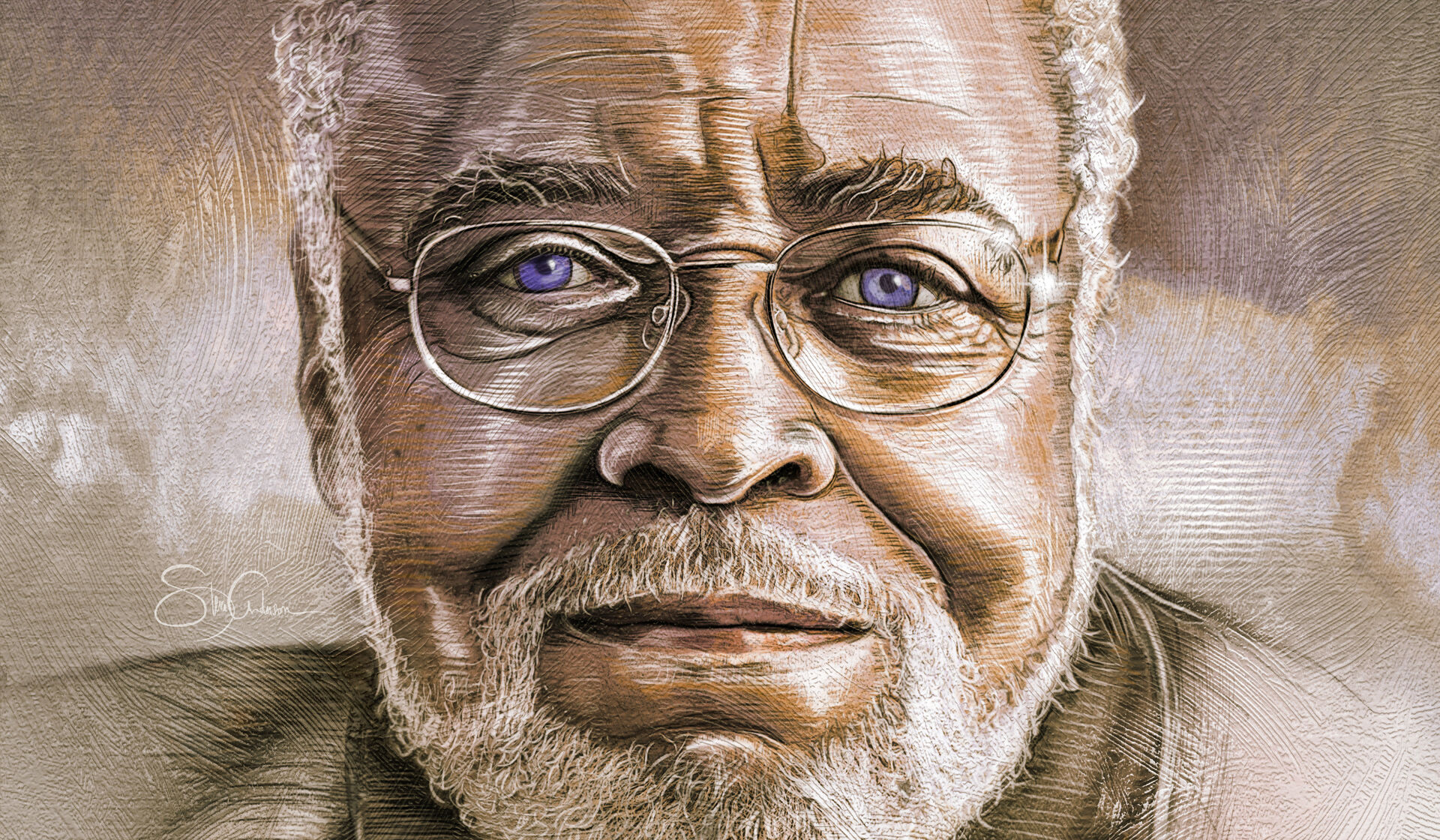Ross Business School senior Ben Hilkert is the CEO of the startup app Kare, a wellness-support program for college students currently in development. With the tagline “Because sometimes we don’t feel our best,” Hilkert is hoping the app will help college students around the country feel supported, particularly during COVID-19. Early testing has already delivered strong testimonials, with one student writing, “Kare provides me with a community where I feel comfortable being vulnerable and asking for guidance.” When not working on the app, Hilkert — who is currently living off campus — binge-reads mystery novels. He also gives his time to 180 Degrees Consulting, a Ross student consultancy for nonprofits and social enterprises.
Michigan Alumnus gleaned the following in a conversation with Bennett.
HILKERT GREW UP in Cleveland, surrounded by a family of avid Ohio State University fans (their dog was named Buckeye). Despite the rivalry, he could not wait to attend U-M, particularly after being one of 400 students accepted into the first four-year undergraduate degree program at the Ross School of Business. While working during high school for his father’s company selling commercial doors, he decided a business degree was in his future. Yet he also knew he ultimately wanted to work for a business with social impact.
BEYOND JOINING an investment club his first-year at U-M, Hilkert was in the Michigan Communities Scholars Program, a living-learning community housed in West Quad made up of students with a commitment to community service. He volunteered at Ronald McDonald House — a nonprofit supporting families with sick children — and joined the Wolverine Support Network. “It is a group of students who show up weekly to just share how everyone is doing and to support each other. What I like about it is we focus on wellness, and anyone can just tell a story. It feels like going home and just telling your parents about what was good or bad about your day.”
 DURING HIS JUNIOR YEAR, Hilkert noticed how long his friends had to wait for an appointment at U-M’s Counseling and Psychological Services. “There are just so many students reaching out to them and though they do a great job, like all mental health clinics, they need more resources.” That is when Hilkert had the idea for Kare. “I wondered what it would take to create an anonymous support group made up of peer listeners who students could reach out to on an app just to talk to and feel supported.”
DURING HIS JUNIOR YEAR, Hilkert noticed how long his friends had to wait for an appointment at U-M’s Counseling and Psychological Services. “There are just so many students reaching out to them and though they do a great job, like all mental health clinics, they need more resources.” That is when Hilkert had the idea for Kare. “I wondered what it would take to create an anonymous support group made up of peer listeners who students could reach out to on an app just to talk to and feel supported.”
HILKERT HAD TWO friends eager to help make Kare a reality: Rodney Sherwin Shibu, a computer science major whom he met through 180 Degrees, and Stephanie Shoo, a senior studying engineering whom Hilkert met during a two-week Ross trip to India. The three students were in the middle of designing the app and gathering data when COVID-19 hit last March, suddenly closing down campus. However, looking at national research numbers — 80% of college students have reported they feel stress weekly and 40% fail to seek help from current campus resources offered — they decided to accelerate the development of their app.
OVER THE SUMMER, nearly 400 students tested the app, contributing ideas on what might improve the user experience. Now, the team— which still includes Shibu, who graduated in May 2020 — is working on the next phase: creating training for peer listeners and reaching out to other universities to gauge nationwide interest in the app. “We are takingour time because it has to be done correctly as a public health project. Our goal is not to create a social network. Quite the opposite. The mission is for students to use it while they need it and then leave us because they feel better. We are not about a high volume of users. Our success will be measured by helping even just one student through a challenging time.”





